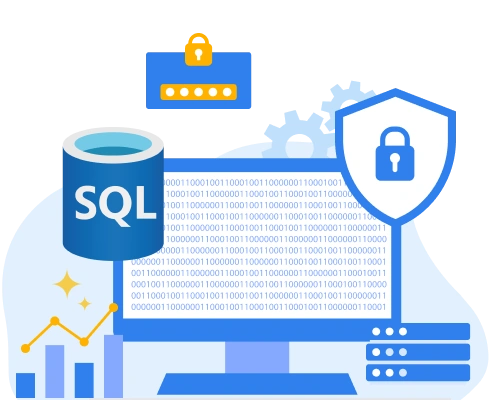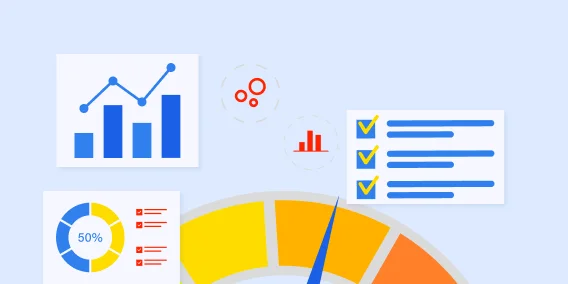 ×
×

Strengthening Data Integrity and Automation with Azure SQL Database
The client, a leading healthcare organization, initially used Excel to manage critical data. They approached NeenOpal to build a more reliable backend system using Azure SQL that would improve data consistency, reduce manual work, and support better data control. The project focused on setting up strong validation rules, automated processes, and referential integrity features like cascading updates to create a scalable, accurate, and future-ready data environment.

Customer Challenges
As data needs grew more complex, the client’s Excel-based setup began to fall short in maintaining consistency, accuracy, and efficiency. Key challenges emerged across data validation, duplication, and maintenance processes, making it difficult to scale or ensure data reliability.

Inconsistent and Unvalidated Data Inputs
The client's existing system allowed users to enter any value freely in Excel, leading to inconsistent naming, unauthorized categories, spelling errors, and non-standard formats. Without centralized control or enforced validation rules, it became difficult to trust the data for reporting or decision-making. These inconsistencies compounded over time, leading to major clean-up efforts and data discrepancies across departments.

High Risk of Duplicate Values
Duplicate entries frequently occurred due to the lack of a centralized system that could flag or block such issues. This was particularly problematic in key dimension fields where uniqueness was critical. The presence of duplicate values not only caused confusion in reporting but also affected business rules and downstream applications that relied on those fields for lookups or aggregation.

Manual Maintenance of Validation Lists
Validation lists (like permissible categories or types) were scattered across different Excel sheets, with no synchronization or version control. Any changes to these lists had to be manually replicated, and errors or omissions often went unnoticed. This fragmented approach to managing reference data made it difficult to enforce business rules consistently and added friction to the data entry process.

Repeated Efforts in Updating Related Data
Certain fields were used across multiple datasets and needed to be manually updated in each of them whenever there was a change. This led to redundant work, higher risk of mismatches, and delayed updates. Inconsistent updates in related tables also threatened referential integrity and sometimes required full audits to correct.

Derived Fields Required Manual Calculation
Several fields in the dataset needed to be derived from related tables based on pre-defined business logic. Since Excel lacked automated mechanisms for these dependencies, users had to perform repetitive lookups and transformations manually. This was not only time-consuming but also error-prone, resulting in delays and inconsistent application of business logic across teams.
Solutions
To modernize the client's data infrastructure, Neenopal designed and implemented a secure, scalable backend powered by Azure SQL. The solution focused on enforcing data governance, automating validation processes, and ensuring seamless data consistency across all systems.
To maintain strict data integrity, the system leveraged multiple SQL constraints within Azure SQL Database. Foreign Key constraints ensured values matched corresponding master tables, eliminating invalid entries and enforcing referential integrity. Unique constraints prevented duplication in key fields, guaranteeing distinct entity identification. Additionally, Check constraints restricted inputs to predefined options (e.g., “Yes,” “No,” “Unknown”), reducing inconsistencies in categorical data. Together, these constraints automated validation at the database level, significantly improving accuracy and data quality without manual intervention.
Previously, validation lists were scattered across multiple Excel sheets and maintained manually. We consolidated these into dedicated reference tables within Azure SQL, creating a single source of truth for all validation rules. By enforcing foreign key relationships, any updates to validation tables dynamically applied across connected datasets, reducing errors and eliminating repetitive updates. This approach simplified maintenance by enabling controlled database operations for adding new values without complex fixes or code changes. Additionally, it improved data governance with better auditability and traceability, ensuring compliance and streamlined operations.
To keep related data consistent, we implemented cascading rules in Azure SQL. With “On Update Cascade”, any change to a key in a parent table automatically updates all matching foreign keys in child tables—no manual cleanup, no mismatched IDs. With “On Delete No Action”, critical records can’t be removed while still referenced elsewhere, preventing orphaned rows and unintended data loss. Together, these constraints streamline data management, enforce disciplined delete workflows, and protect the system from referential breaks and corruption. Let me know if you want a version with a quick example (e.g., customers → orders).
To manage fields dependent on other datasets or complex calculations, we implemented stored procedures that handled data extraction, transformations, and population of derived fields. These procedures encapsulated all business logic, ensuring consistency and accuracy. Using Azure Data Factory pipelines, we scheduled these jobs to run multiple times daily, delivering near real-time updates without manual intervention. This automation minimized repetitive effort, improved data freshness and accuracy, and allowed users to focus on strategic tasks instead of routine updates.
Services Used

Azure SQL Database

Azure Data Factory

Azure Logic Apps

Power Apps
Power BI
Why choose NeenOpal?
NeenOpal combines deep technical expertise with a strong understanding of business needs to deliver cloud-native solutions that are both scalable and future-ready. For this project, we implemented a secure, automated data management system using the Microsoft Azure ecosystem, ensuring data integrity, validation, and seamless workflow automation. With hands-on experience across Azure SQL, Azure Data Factory, Azure Logic Apps, Power Apps, and Power BI, our team translated complex requirements into efficient, user-centric solutions. Neenopal’s adaptable approach and focus on long-term impact positioned us as a reliable partner in the client’s digital transformation journey.
Benefits
The platform now delivers robust data validation, automated workflows, and seamless user experience. Leveraging Azure’s scalable and integrated services, the client minimized manual errors while accelerating data accuracy and operational efficiency across their healthcare data ecosystem:
Conclusion
NeenOpal delivered more than just a data management system, we enabled a foundation of data integrity and automation. Our client now benefits from accurate, validated data with streamlined workflows that reduce errors and improve efficiency. Built on Microsoft Azure’s powerful and scalable platform, the solution is designed to grow, adapt, and support the client’s evolving business needs with confidence and agility.









